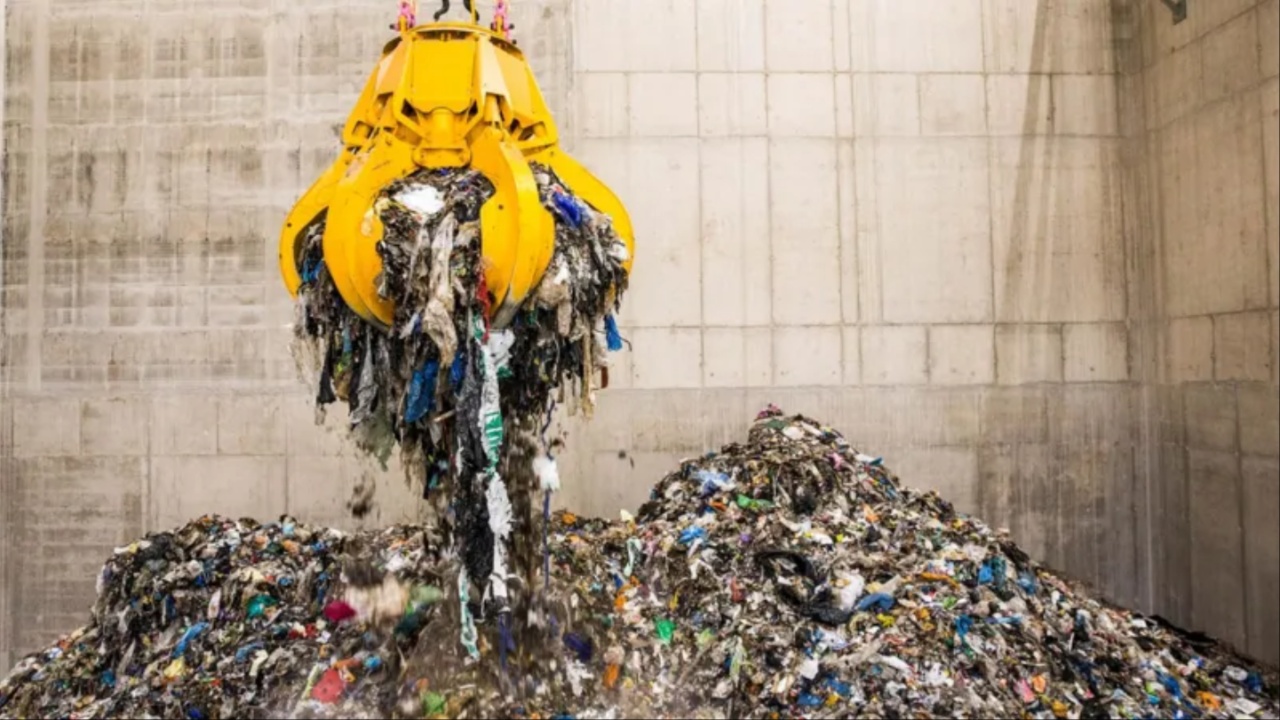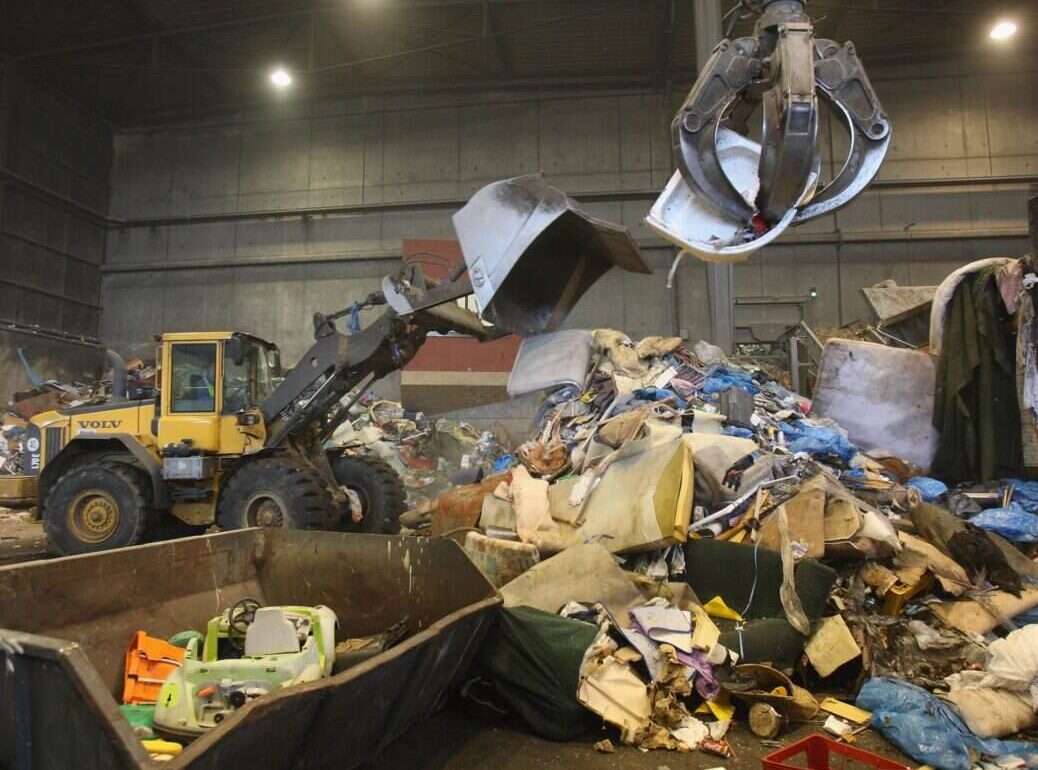Burning household rubbish in large incinerators to generate electricity has become the most polluting way the UK produces power, according to BBC analysis. Nearly half of the waste from UK homes, including a significant amount of plastic, is now being incinerated. Scientists and environmental advocates warn this is a climate disaster and are calling for a halt to the construction of new incinerators.
The BBC examined data from the past five years, revealing that waste incineration produces the same level of greenhouse gas emissions per unit of energy as coal power, which the UK recently phased out.
In response to concerns over the climate impact of landfill waste 15 years ago, the UK government significantly increased landfill taxes to discourage councils from burying rubbish. As a result, local authorities began relying more on energy-from-waste plants, which burn rubbish to generate electricity.
The number of these incinerators has increased dramatically, particularly in England, where the number of plants has risen from 38 to 52 over the last five years. While incinerators account for around 3.1% of the UK’s energy supply, their environmental costs are mounting.
Incinerators were initially marketed as a greener alternative to landfilling, particularly for biodegradable materials like food waste. However, when it comes to burning plastics, which are made from fossil fuels, incinerators are highly polluting.

In recent years, the amount of plastic being incinerated has increased while food waste has been diverted to more sustainable processes like composting and anaerobic digestion. This shift in waste composition has led to an increase in greenhouse gas emissions from incinerators, a problem that government calculations have underestimated by assuming waste composition hasn’t changed since 2017.
The BBC’s analysis of pollution data from incinerators shows that energy-from-waste plants now emit as much greenhouse gas per unit of electricity as coal power plants. This is a significant setback for the UK, which has spent decades reducing coal use and, in 2023, closed its last coal plant.
The government’s target to eliminate carbon emissions from electricity generation by 2030 is now at risk, as waste incineration takes the dubious distinction of being the dirtiest form of energy production.
Environmental experts and members of the UK Climate Change Committee have raised alarms about the growing reliance on incinerators. Professor Ian Williams from the University of Southampton described the practice as being in direct conflict with the UK’s efforts to reduce greenhouse gas emissions.
Despite these warnings, the number of incinerators continues to grow, with recent approvals for new facilities, including a £150 million project in Dorset, sparking concern about the future direction of the UK’s waste management strategy.
In contrast to England, Wales and Scotland have introduced bans on new incinerator plants due to environmental concerns, and there are increasing calls for similar action in England and Northern Ireland. These calls are supported by experts and environmental groups who argue that the UK cannot continue building new incinerators without implementing carbon capture technologies.
However, only a handful of the UK’s incinerators have plans to capture emissions, and one pilot project at Ferrybridge EfW captures just one tonne of CO2 daily, compared to the half a million tonnes the plant emits annually.
The growth of the incineration sector is not only a climate issue but also a contractual one. Many councils are locked into long-term contracts with waste companies, which makes it difficult for them to reduce incineration and invest in greener alternatives like recycling.
The BBC uncovered that local authorities have at least £30 billion worth of contracts tied to waste incinerators, some of which last over 20 years. These contracts often include clauses that require a minimum amount of waste to be sent for burning, making it financially risky for councils to reduce reliance on incineration.
Efforts to increase recycling rates have stagnated, with England’s recycling rate stuck at around 41% for the past decade, despite a government target of reaching 65% by 2035. The Local Government Association has expressed concerns that restrictive contracts prevent councils from pursuing more sustainable waste management strategies.
Meanwhile, the waste industry defends incineration, arguing that it complements recycling efforts. However, critics believe that the current system prioritizes incineration at the expense of more environmentally friendly solutions.

